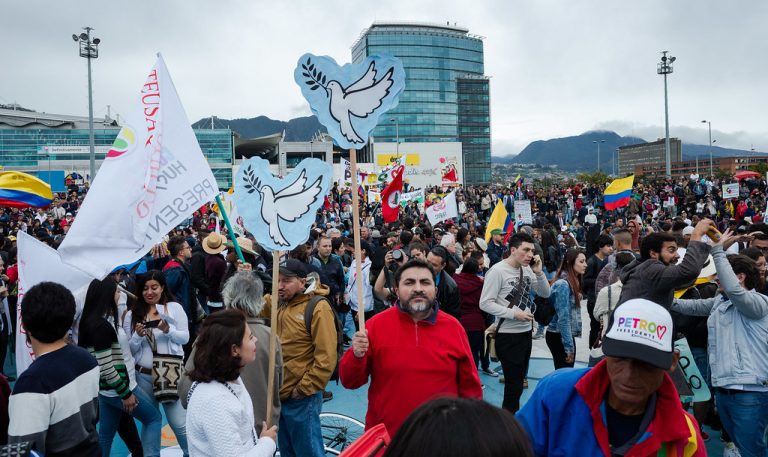Does the degree of exposure to violence shape “civilian attitudes” toward conflict resolution and peace processes? For some unfortunate people, conflict is a part of their everyday life, and for others, it rarely disrupts their daily living. Civilians within the same country can have a significantly different wartime experience depending on their physical proximity to the conflict zone and violence. It is implausible that in the same geographic region, some lives are devastated while others are almost unaware of the fighting. Especially with ongoing conflicts, such as in Colombia, the level of exposure to violence is considerably different amongst its citizens in regard to ending the conflict.
A recent study examined exposure by noncombatants to the conflict in Colombia. The research examined the level of exposure and how it shaped their thoughts regarding conflict-termination policies and the peace process. The survey participants were selected from both high and low-conflict zones. The results indicated that civilians who lived in high-conflict zones had a different impression of conflict-termination than people in safe zones. Civilians who frequently experienced conflict and violence were more open to peace talks and were more willing to grant concessions to the rebel groups such as FARC (The Revolutionary Armed Forces of Colombia), but less willing to integrate with demobilized fighters. The study also found that safety was the primary motivation for people in high-conflict areas to support a peace agreement. On the other hand, civilians with low exposure to the conflict were less concerned with their safety and thus less open to the peace settlements that may favor rebel groups.
Practitioners should consider proximity as a possible reason that the community members are less likely to support reintegration with demobilized fighters. It is also imperative to identify the motivational factors of individuals’ preferences for peace policies in a low conflict region. When physical safety is less pressing, values in regards to fairness and justice may become more meaningful in individuals’ lives. This research indicates that additional information is needed to examine the importance of public opinion with regards to agreement terms during the resolution phase of a conflict.
Tellez, J. F. (2019). Worlds apart: Conflict exposure and preferences for peace. Journal of Conflict Resolution, 63(4), 1053–1076. https://doi.org/10.1177/0022002718775825
Fatma Susan Tufan is currently pursuing her MA in the Social-Organizational Psychology program at Teachers College, Columbia University, as well as a Certificate in Cooperation and Conflict Resolution from the MD-ICCR. She holds a B.A. in Sociology with a minor in Peace and Justice studies from Moravian College. Her research interests include intra and intergroup conflicts, conflict transformation, intractable conflicts, and sustainable peace.
